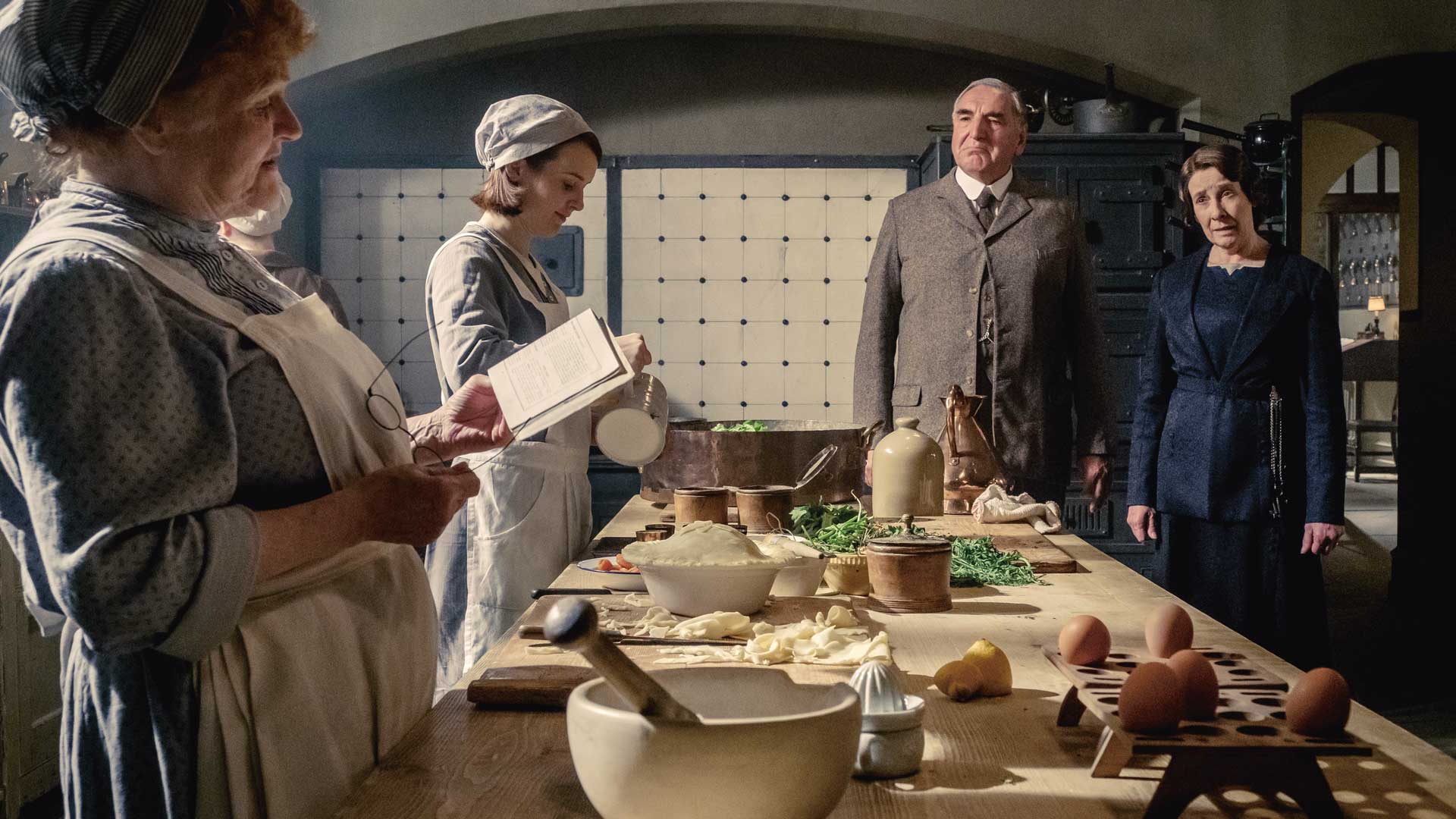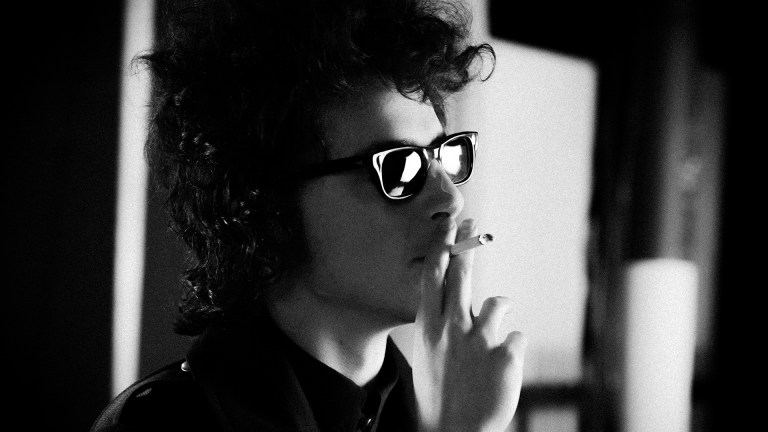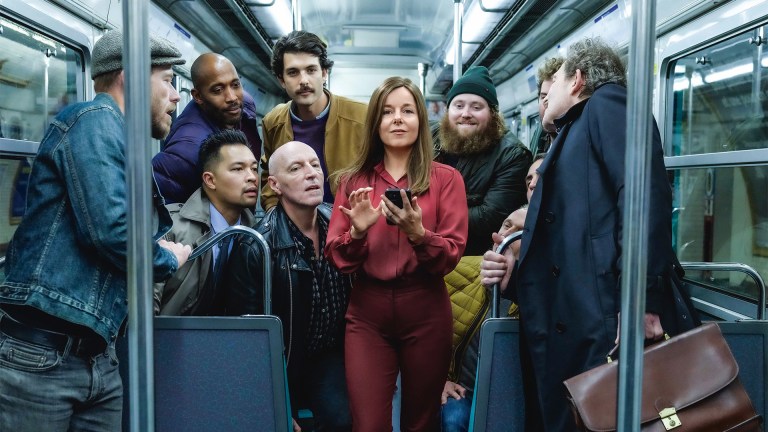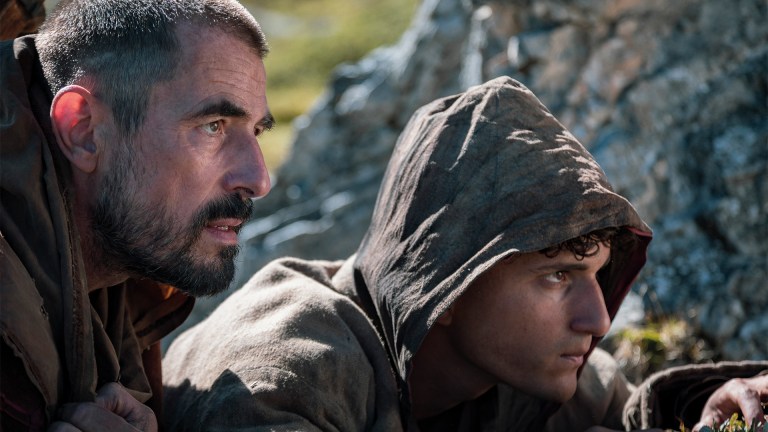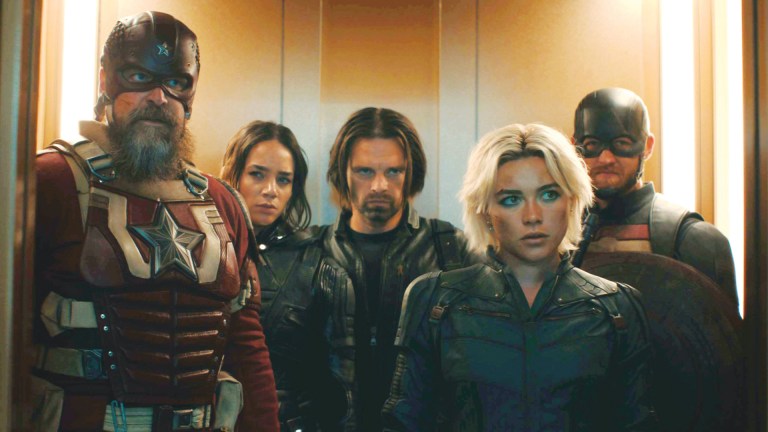Newcomer Tuppence Middleton joins the cast as maid of Lady Bagshawe (Imelda Staunton) having previously impressed in War & Peace. We paired her up with Logan (aka Mrs Carson, the housekeeper formerly known as Mrs Hughes) to talk about the return of a thoroughly British cultural phenomenon.
“Everywhere you go in the world people know about Downton Abbey. In the UK we have produced a lot of period dramas, but Downton really captured people’s hearts,” says Middleton. “And the lovely thing about it spanning so many series is that you get to watch it cross so many decades and see how the socio-political change affects each character.”
Logan agrees: “We have gone from Victorian times to the Roaring Twenties – and that was the most significant shift in history. A big, big leap.”
The series stands in marked contrast to most recent global television hits. This was easy viewing. A family saga centred around a decency and goodness that remained relatively undisturbed by the British class system, the First World War or even the spiky wit of Maggie Smith’s Dowager Countess. That its success arrived as Britain and the wider world was responding to a global financial crisis was no coincidence.
“There is nothing wrong with escapism,” says Logan. “It had a glamour to it, with flamboyant and feisty characters. So maybe people did feel it was nice to hark back to that and get out of the doldrums we have been plummeted into. People did see it as an antidote to what was going on in the country.”
The film arrives as Britain’s place and standing in the world is once again in question. Though the film is set in 1927, is it important in terms of how the world perceives the UK of today? After all, like James Bond, Harry Potter and Adele, it will reach a global audience of millions.
“People always look to escape in difficult times,” says Middleton. “In uneasy times, our country is known for struggling through no matter what and being able to look at any scenario and make the best of it.
A lot of naysayers would say it has no reflection of Britain at all and that it is a fairytale notion of what Britain is or was like
“Downton Abbey really captures the wit and strength and ability of the British to carry on. That is what people relate to.”
“Trench humour at its best,” deadpans Logan.
“To have an impact in far-flung countries of the world, not just the States, but all over the place is incredible,” says Logan. “They even love us in China. You wouldn’t imagine they would identify with this kind of thing, but they do. Hopefully it will have some sort of commercial impact on the country too – we could do with it doing well for the economy!”
And is it a realistic reflection of Britain now, then, or ever? And does that even matter?
“A lot of naysayers would say it has no reflection of Britain at all and that it is a fairytale notion of what Britain is or was like,” says Logan, laughing.
“People say it is living in a cloud cuckooland.
“Now the class system is very much there within Downton Abbey but the Crawleys are very benign and good to their staff. And I read a lot of books about people who had been in service and their lives were absolute miseries.
“That said, working in the big house in the village gave you huge kudos. You could work the land but that was hard as well, so it was one of the few options you had in life. It is fascinating to think that was life once upon a time.”
A fairytale version, then, but one that shines a light on the reality?
“Exactly. You get the impression from the Downton version that there is a mutual respect between those two groups – the upstairs and the downstairs,” says Middleton.
“[Julian Fellowes] is writing a version of how that would have looked had it been fairer – so hopefully we can watch it and learn from the mistakes of the past.”
Downton Abbey is out now in cinemas
